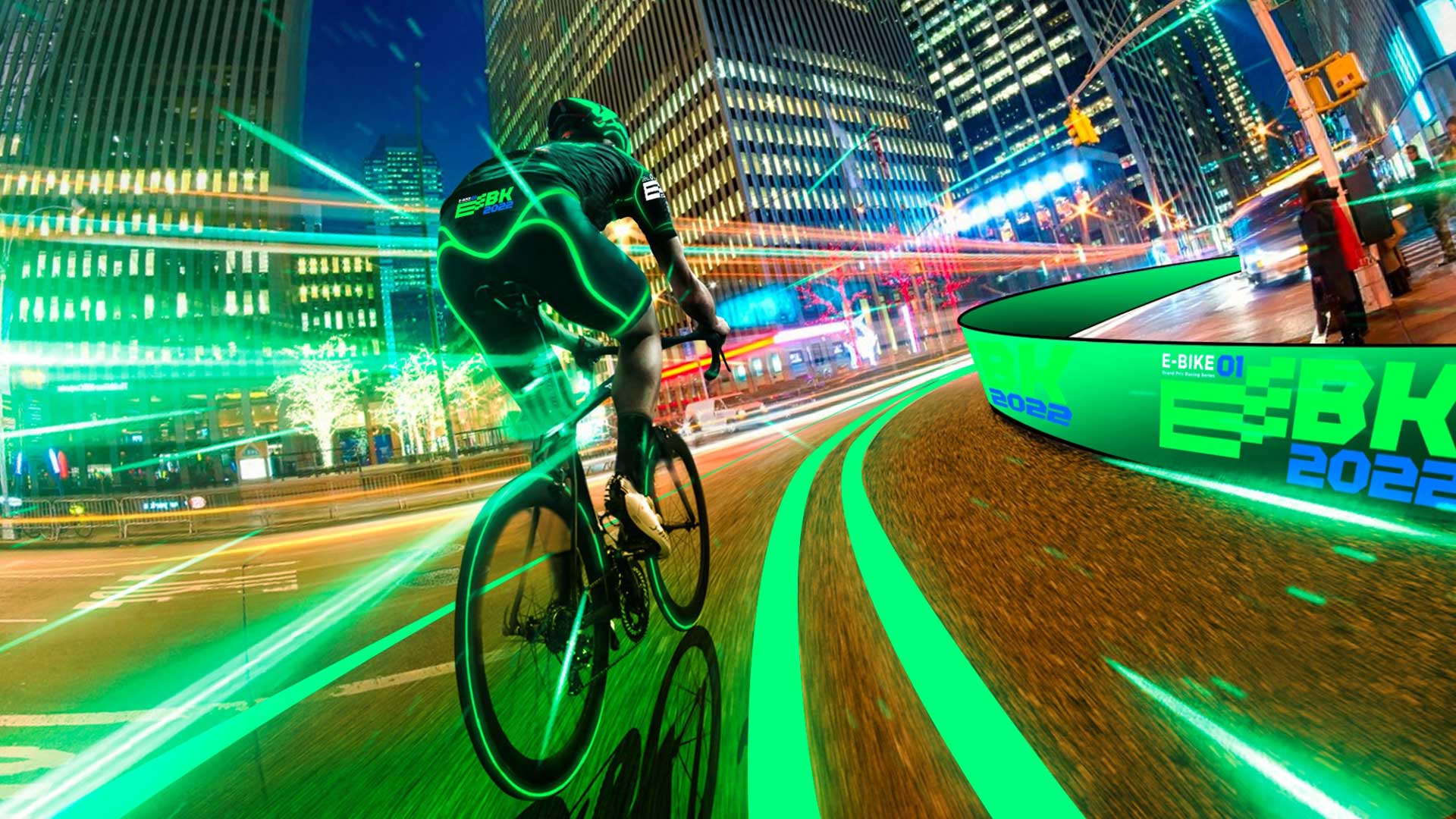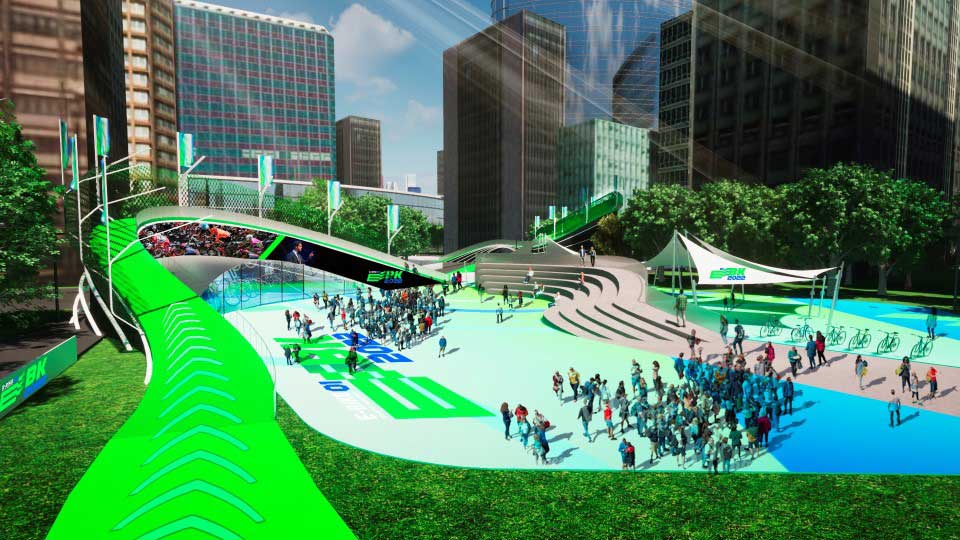New e-bike racing series promises 'highway speeds' on city streets in 2022

Plans are afoot for a new e-bike grand prix, which will involve professional riders racing electric bikes at 'motorway speeds' along city routes.
The EBK Grand Prix Series is due to begin in 2022, with 10 events spread out throughout the year. Each race will last an hour, and take place on closed roads with extra obstacles for an added challenge.
- We've tested and ranked the best folding e-bikes
- Check out our complete guide to e-bike maintenance
- Find out why your e-bike needs insurance
The organizer, Cube International, is hoping to host races around the world, with events penciled in for the US, Canada, UK, mainland Europe, South Africa, Russia, UAE, India, China, and Australia.
Racing lines
With speeds hitting up to 70mph, bikes used in the EBK Grand Prix Series are likely to look pretty different to our current top-rated e-bikes – the Cowboy 4 and Ribble Hybrid AL e – but the actual riding experience might not be too different.
Different countries have different rules about what qualifies as an e-bike. In the UK, where Cube International is based, an e-bike's motor must only be activated when the rider is pedaling. The motor must have a maximum power output of 250 watts, and a top speed of no more than 15.5mph.
A bike that meets those criteria is treated the same as an ordinary bicycle, but those with more powerful motors, higher top speeds, and throttle controls are classed as mopeds and must only be ridden on roads with appropriate tax and insurance, plus a license.

Although their motors will be much too powerful for regular road use, it sounds like EBK Grand Prix racers will still rely on a certain amount of pedal power. Cube International says that the courses will include 20% climbs that will "push the riders into their red zone, forcing them to use up their limited energy reserves".
Sign up for breaking news, reviews, opinion, top tech deals, and more.
Modern battery designs mean e-bikes are capable of some pretty impressive ranges, but fast speeds and tough terrain can cut that down significantly. If you're planning a long ride, it's important to plan your route and ration your power usage so you have enough left for the tougher sections of the course.
EBK riders will have to use the same type of strategy and may have to put in some serious pedal work throughout each race to maintain enough power for the hills.
They won't be sticking to a set plan throughout the whole race, either. While weekend riders have to map out their power usage in full before heading out, Cube International says teams will be able to adjust their strategies trackside using live data streams – which could result in more interesting and dynamic races than Formula 1 events where strategies are defined by meticulously planned and rehearsed pit-stops.
Analysis: making racing green
Carbon emissions are a tough problem for motorsports. Formula One is notoriously carbon-heavy; the petrol-powered cars themselves emit a substantial volume of CO2 during races, but the real damage comes from transporting the teams and equipment around the world throughout the race season. In 2018, the Formula One Group itself calculated its total carbon emissions at 256,551 tonnes, not including all the fans traveling to watch races.
The organization is hoping to cut emissions to net-zero by switching to zero-emission cars, using renewable power for offices and factories, and offsetting unavoidable emissions through sustainability projects, but it's going to be a long road, and F1 has set itself a deadline of 2030.
Formula E has been certified as producing net-zero carbon since the beginning by using the same strategy, but there's a chance that the EBK Grand Prix Series could go a step further.

The e-bikes themselves are zero emissions, and Cube International says that teams will only undertake 'essential travel', but cities will also have to agree to a set of sustainability goals before hosting a race.
Perhaps more importantly, the series has the potential to make e-bikes cool. Electric bikes are gradually losing their stigma, but there are still some riders who consider them 'cheating', and not proper cycling. If the new race series is a success, it could help erode that reputation, and prove that riding an e-bike can still take real physical endurance and skill – particularly when hitting up to 70mph in the middle of a city.
If so, and people are tempted to try e-bikes rather than more polluting vehicles, the series could have a much longer-term impact than any individual race.
Via ebiketips.co.uk
- We've tested and ranked the best electric scooters

Cat is TechRadar's Homes Editor specializing in kitchen appliances and smart home technology. She's been a tech journalist for 15 years, having worked on print magazines including PC Plus and PC Format, and is a Speciality Coffee Association (SCA) certified barista. Whether you want to invest in some smart lights or pick up a new espresso machine, she's the right person to help.